Our students, in their words – find out what it's like studying at Chemical Engineering
Undergraduate
 Louise Roberts, Year 2
Louise Roberts, Year 2

I became interested in studying Chemical Engineering after I completed a two-week work experience placement in an oil and gas company when I was 15. I enjoyed the idea of being able to apply maths and physics principles to design large industrial units, which many people may benefit from.
- Read more
I decided to come to UCL after coming to one of the Chemical Engineering open days, which was organised by students currently in the department. I really liked the openness between the department and the students, the healthy work-life balance and the huge variety of opportunities available to us within the department; consequently, by joining UCL I felt I would be able to make the most out of my time at university.
Over the past year I have enjoyed being able to apply the theory learnt in lectures to the larger picture, for example in thermodynamics where we applied theory learnt in class to complete refrigeration cycle problems and the mini-design project in introduction to chemical engineering where we designed a distillation column amongst other things. I have also had the opportunity to study a biochemical engineering module: 'introduction to biochemical engineering' at the start of the year, which was a great opportunity as UCL has a world leading biochemical engineering department. In this module we worked in a team to produce a presentation, which has lead to an improvement in my teamwork, communication, organisation and presentation skills, which I have had many opportunities to develop throughout the year.
However, it is not all work, during the year I have been actively involved in going to Ramsay Society events (which is the Chemical Engineering society at UCL), which have included a cocktail party, a visit to industry, a pub-crawl, pub quiz and Frank Morton. Having been involved in these I have been able to get to know Chemical Engineers in all different years that have been able to pass on advice and tips, and in addition to this, having spent so much time with some of the people in my year, many of my course mates are now my closest friends.
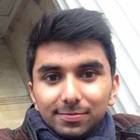 Vishal Saxena, Year 3
Vishal Saxena, Year 3

Chemistry and Maths, and actually some real world applications for once- this is what intrigued me about this degree. Secondly it is very diverse, and the skills that I can gain here can be applied to so many different fields. Engineering is obviously one area, but the skills that I am developing are directly relevant to many others, such as banking and consulting, for example.
- Read more
UCL was always a firm favourite of mine due to its name, and location; it is always important to remember how privileged we are to have the opportunity to study at a world renowned university in the capital of the world- I truly believe that this definition applies to London, the centre for business. I feel that exposing myself to this atmosphere has enhanced my confidence.
The course at UCL is good, and of late is undergoing changes which will make it even better. What I enjoy about the course is the manner in which it is taught-how we are given regular coursework which constantly builds upon what we have learnt, and aims at developing skills which I guess will really help us for the third year design project, and of course in our careers later on.
Time management is one of the most important skills that university has taught me- trying to balance my sport, alongside exams and coursework, not to mention trying to have a social life, really requires a good ability to plan and organise.
UCL is truly London's global university. Do not miss out on the chance to be a part of this!
 Moyin Apapa, Year 1
Moyin Apapa, Year 1

Hi, my name is Moyin Apapa and I’m a first year student here at UCL. I chose to study Chemical Engineering (MEng) because I really enjoyed studying maths and science at college. I found that the best course that would give me the perfect combination of these two areas was Chemical Engineering and I couldn’t imagine myself doing anything else.
- Read more
I really enjoy attending events organised by the Chemical Engineering society and the networking opportunities we are often provided with to help us improve skills and boost our CV’s.
So far, we have been given a number of inter-disciplinary projects which required us to work with other engineers, exploring ideas beyond the lecture theatres. This helps to improve team work and communication as well as leadership and management skills. Extra-curricular activities I partake in such as the VOCE Gospel Society and Kickboxing Society also helped take my mind off academic work for a while and allowed to meet new people, have fun and relax.
For anyone considering studying in UCL, I would advise you to read up on the course structure so you know what to expect and avoid disappointment; I would also advise you to prepare to work hard and challenge yourself but also have fun at the same time.
The chance to study in the heart of such a vibrant city is an opportunity you don’t want to miss out on and I hope you enjoy studying Chemical Engineering wherever you go.
 Callum Stewart, Year 2
Callum Stewart, Year 2

What attracted me to studying at UCL was the diversity of the student background, the prestige that the university holds and the vibrant city that London is. My main source of enjoyment from the course come from the ability to interact with the new techniques and theories I am taught, through lab test and programming classes.
- Read more
The skills I have thus far developed from the course is my ability to solve problems systematically, which is through breaking down the problem to find an engineering solution, and by being a representative for the courses ramsay society I have greatly developed and enhanced my team working and people skills.
My main bit of advice to new joining students would be to get out there and do it. UCL is what you make of it, and with all the societies available you're bound to find something that suits you!
Postgraduate taught
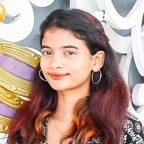 Simran Effricia, MSc in Chemical Process Engineering Graduate 2022
Simran Effricia, MSc in Chemical Process Engineering Graduate 2022

As a young girl, the science of life intrigued me; for the most part, the human body. My interest traces back to the influence of my father who encouraged me to relate theoretical concepts to real-life implications. The prospect of relating everyday phenomena such as the functioning of a kidney to reverse osmosis or the human heart to pumps excited me. So, why Chemical Engineering? Chemical engineering is in the foreground of the engineering landscape as it relates directly to the intricate problem solving required in today’s world. I wanted to choose a field in which I could take molecular concepts from mere ideas to large scalable solutions.
- Read more
My disposition called for a universal field; highly interdisciplinary and not restricted to traditional engineering. After completing my undergraduate degree in Chemical Engineering along with a brief internship at a distinguished Oil & Gas company, I knew that I had to develop a well-rounded and deeper understanding to make a lasting impact in the industry. National and international rankings place UCL among the best universities in the world. With a location like no other, I knew UCL would be the right place for me to pursue my Master’s Degree. The department is famed for the breadth, and depth of the innovative modules offered. The wide range of modules introduced me to new concepts while strengthening my core foundation. The module ‘Nature Inspired Chemical Engineering (NICE)’ headed by Prof Marc-Olivier Coppens was one of the most interesting modules for me, as we related nature-inspired mechanisms to engineer transformative solutions. The fact that the programme offers routes like the Research or the Chartered route is unique. The prospect of attaining chartership is something that I have always considered, and so, I chose the ‘Advanced Chemical Engineering Route’, accredited by IChemE.
My year at UCL has been challenging, yet very interesting and rewarding. I was surprised how studying engineering at UCL really pushed me to my limit. The on-going consequences of COVID-19 meant that we as a cohort were subject to hybrid learning - an experience on its own. It was the “new normal” to attend classes remotely, sometimes even from a different country! The academic staff put in extra effort to make the transition as seamless as possible. The live interactive sessions helped me get introduced to my course mates, which built a sense of community within the department. We also had in-person classes once a week per module, creating the perfect balance.
Apart from the well-structured program, the quality of research taking place chiefly influenced my decision to choose UCL. We had a huge variety of projects from different areas of research available to us. For my research project, I had the opportunity of working with Prof Michail Stamatakis, a master in the field of Single Atom Alloy (SAA) Catalysts. I experienced a dramatically steep learning curve working under his supervision throughout the project, and am very grateful for all the support and guidance that was extended to me.
The professional connections and personal opportunities offered by UCL’s MSc program has made a profound impact on me. A Master’s degree from UCL, a premier institution in the world, provided me with a strong foundation and paved the way for professional development needed to emerge as a competent engineer and positively challenge convention. ‘UCL Careers’ offers to prepare students to explore various career options, both within and beyond academia. This MSc program has helped launch my career, it has fostered lifelong friendships, and the learning is incomparable to my previous education. All in all, it was one of the best student years of my life!
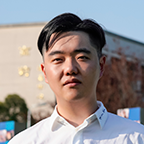 Yiyang Liu, MSc in Chemical Process Engineering Graduate 2020
Yiyang Liu, MSc in Chemical Process Engineering Graduate 2020

After several years of entrepreneurial and internship experiences, I realized the value of scientific and technological innovation. Therefore, I had a strong motivation to create a start-up that would commercialize high-tech innovation. However, I needed to transform from a "businessman" into a “scientist”, due to the lack in professional knowledge and connections. The MSc Chemical Process Engineering - one of my best choices to date - perfectly met all of my demands and changed my life.
- Read more
The most exciting part was the inspiring learning environment. For instance, the MSc unique module "Natural Inspired Chemical Engineering" is a fascinating course, which provides several nature-inspired methodologies to solve practical challenges while teaching students to think disruptively. The rest of the courses, such as Advanced Transport Phenomena, give students a fundamental understanding of complex and demanding subjects in an easy-to-understand and witty way.
The world-leading research and experts helped me realize the transformation. Under the supervision of Prof Dan Brett and Dr Guanjie He, I conducted research about cathode materials for aqueous batteries and published my dissertation in a high-impact journal. In addition, I published another 5 peer-reviewed papers (2 as first author) during the MSc period. Now, I have continued my Ph.D. research in the UCL Electrochemical Innovation Lab (EIL).
High-quality education also comes from the tutors’ work. As the MSc programme Rep, the suggestions, ideas and feedback from students always attracted the attention of the responsible teachers immediately and were solved quickly. In addition, the highly-supportive career-oriented assistance at UCL, such as CV modification and interview coaching, provide more possibilities for the future career development of students. Therefore, I highly recommend this program to any student who wants to pursue further study in this field.
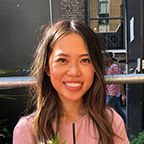 Duyen Tran, MSc in Chemical Process Engineering Graduate 2020
Duyen Tran, MSc in Chemical Process Engineering Graduate 2020

After completing my BEng in Chemical Engineering at Aston University, I applied to the MSc Chemical Process Engineering programme at UCL, with the aim to attain chartership in the future. UCL was a natural choice for me due to its renowned reputation, and I understood how UCL had achieved such a reputation as soon as I started my MSc studies. In the relatively short duration of my course, I was definitely challenged and pushed to my limits, but this is what allowed me to learn so much. I was able to expand my knowledge due to the range of optional modules available - nothing I learnt was repetitive of the content from my BEng, which made the course interesting. It wasn’t until I went to UCL that I realised how vast chemical engineering is, with topics ranging from water treatment to electrochemical engineering.
- Read more
A significant part of my experience involved my research project on the effect of nanoparticles on emulsions, where I greatly developed my research, project management and presentation skills. This project was particularly useful to me, as it prepared me for my engineering career.
Achieving my MSc was an extremely valuable experience. Although it was demanding, it was very rewarding and the staff really fostered my independent academic development.
 Mulan Tu, MSc in Chemical Process Engineering Graduate 2020
Mulan Tu, MSc in Chemical Process Engineering Graduate 2020

Daily supplies are essential to our life. When I used them, I was always curious where they came from. After then, the mysterious factory attracted me to learn chemical engineering. I took it as a major for both undergraduate and postgraduate studies. In my undergraduate studies, I learnt many preliminary principles for chemical process design but still lacked depth. Therefore, I continued learning chemical process engineering in UCL at postgraduate level, and I chose the advanced chemical engineering route.
- Read more
During one year of study, I gained valuable knowledge and learnt software such as gPROMS. The thoughts I formed during this course helped me a lot not only in employment but also in daily life.
 Dusita De Hoop, MSc in Chemical Process Engineering Graduate 2019
Dusita De Hoop, MSc in Chemical Process Engineering Graduate 2019

I consider the MSc in Chemical Process Engineering as one of the most challenging but gratifying programs I have completed so far. Completing my bachelors from a Liberal Arts and Sciences college majoring in Chemistry and Physics in the Netherlands, I chose to take the design route within the MSc program to become a chartered Chemical Engineer. Coming from a non-Engineering background, learning new concepts and skills in a short amount of time has been tough and demanding at times. Nevertheless, I have gained valuable knowledge and skills that have opened up many different employment opportunities both inside and outside the Chemical Engineering sector.
- Read more
One of the highlights of the year was working on the final design project, which involved the design and simulation of a styrene production process. The entire year led up to this moment in which we could apply and implement all the knowledge we had learned. The design project helped me understand what I wanted to do after the degree, as it offered me the opportunity to take on various roles and explore different topics. As the first half of the project was group based, this project also taught me how to work with other students from diverse educational backgrounds and mind-sets to deliver work that everyone was satisfied with under tight time constraints. Overall, the design project was extremely challenging, but the outcome without any doubt made me feel proud of myself and of my peers.
Through this program, I met many like-minded students and together, as a group, we helped one another. When I had any questions or problems understanding a topic, the academic staff was undoubtedly supportive and eager to help. I am truly thankful to my peers and professors that helped me throughout the year, and I am extremely glad that I have enrolled in this program. It has been an amazing year living in London and studying at UCL.
 Fareed Raghdo, MSc in Chemical Process Engineering Graduate 2019
Fareed Raghdo, MSc in Chemical Process Engineering Graduate 2019

After completing my BEng in Chemical Engineering at the University of Surrey, I decided to pursue the MSc programme at UCL, not just for its location in Central London, but also for the departments commitment to getting to the heart of the subject and its real world, wide ranging application.
- Read more
Students are provided with an extensive number of modules and research topics to choose from, with a staff more than willing to provide extra support when needed. I was not disappointed with my experience and have come away with far reaching and versatile skills, both socially and in Chemical Process Engineering.
 Yiting He, MSc in Chemical Process Engineering Graduate 2019
Yiting He, MSc in Chemical Process Engineering Graduate 2019

The year at University College London was full of opportunities and challenges for me. I graduated from the University of Nottingham Ningbo China with a first-class honours degree in Chemical Engineering. Out of the love of this major, without doubt I enrolled in the UCL MSc in Chemical Process Engineering to continue my further study.
- Read more
The courses and research projects provided allowed me to study Chemical Engineering from several perspectives and to master many skills. Therefore, it is a wise choice for the person who wants to have good development in this industry. This programme gives students high autonomy to choose the modules they are interested in and provides many possibilities for their future career. The courses of Advanced Process Engineering and Process Systems Modelling and Design allow learning programming to solve Chemical Engineering-related questions numerically. At the same time, they help students keep up with the pace of the times, since programming has become a necessary skill in many industries. Energy Systems and Sustainability and Electrochemical Engineering and Power Sources provide students with cutting-edge knowledge of new energy resources, which is also one of the hottest topics in the industry. Besides, we could learn about the environment, engineering management and finance, which improves students' competitiveness in the market. My favourite module was the Research Project. I had the honour to join Professor Junwang Tang's research group and carry out research on microwave synthetic biopolymer. This module not only taught me a new way to process materials but also allowed me to acquire enormous expertise about materials. Additionally, I also realized how to complete a project like a real researcher, including how to plan the whole project, how to do literature research, how to complete the experiment from an idea, etc. This knowledge and the skills I developed enable me to go further in scientific research, which is the most important thing. Overall, if you love the industry of Chemical Engineering, the MSc in Chemical Process Engineering can give you a better development, because of the excellent academic atmosphere and high-quality education.
 Yousef El-Delbi, MSc in Chemical Process Engineering Graduate 2018
Yousef El-Delbi, MSc in Chemical Process Engineering Graduate 2018

Undertaking the MSc in Chemical engineering was the best decision I have made thus far in my life. I completed my undergraduate degree in Chemical & Process engineering in LSBU and was at first thinking of going straight into work. However, after some contemplation I decided to do a Masters in UCL as I rightly believed this will cement and increase my knowledge in the field as well as give me the opportunity to become chartered in the future.
- Read more
I felt UCL provided novel modules such as Nature Inspired Chemical Engineering which drew my attention as well as powerful optimization modules like Advanced Process Engineering, the variety of the modules coupled with the top quality lectures who are leaders of their fields in their own right made my experience of UCL even more fulfilling.
The year was intense right from the beginning and full time dedication was expected from me in order to succeed and maintain the different deadlines. UCL being an internationally renowned university naturally drew motivated students from all over the world, this created an environment which bought the best out of me and I don’t think this would have been possible in any other university.
My research project was also another highlight in the year. It involved investigating the production of Syngas from municipal waste, this involved using a fluidization rig at UCL and world class X-ray equipment and software programs to investigate the de-volatilisation process as well as collaborating with a company called Advanced Plasma Power who have commercialised the process. I recommend this course for anyone who loves challenges and wants to improve themselves academically and career wise.
 Yue Wen, MSc in Chemical Process Engineering Graduate 2018
Yue Wen, MSc in Chemical Process Engineering Graduate 2018

For me, the past year in UCL was fascinating, challenging and memoizable. As a BSc student with a first degree in food science, I graduated from University College Cork in 2017 and decided to explore my vision by changing major into chemical engineering. With a central London location, the diversified available interdisciplinary subjects, and especially the high reputation in the research area, the MSc chemical process engineering programme was highly recommended and is the best option for me to pursue an academic degree further.
- Read more
The most exciting experience in UCL was the research programme I took. Under the supervision of Dr. Ryan Wang, I explored the innovated advanced materials of Lithium-sulphur battery via its synthesis procedures, nano-scaled characterization technics, and electrochemical analysis. The attractive feature of the research is its possibility on ‘Changing the World.’ That’s why, and in the meantime, because of the experience in UCL made my determination on continuing my journey associated with scientific research. Therefore, I will start my postgraduate programme in Electrochemical and Innovation Lab, which also belongs to the UCL Chemical Engineering department.
The high quality of education, multiformity of student activity, and comprehensive supply on advanced research instruments in this programme satisfied my all aspects of requirements. I would have chosen UCL again if I had another opportunity to make a decision.
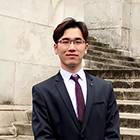 Qinrong Zhang, MSc in Chemical Process Engineering Graduate 2018
Qinrong Zhang, MSc in Chemical Process Engineering Graduate 2018

In 2017, I obtained my BEng degree with Honours from University College London. As a result of my three years’ study and research in chemical engineering, my interest and passion for developing sustainable energy grew profoundly. And I decided to further build my knowledge in Chemical Engineering, UCL was still my first choice.
- Read more
The MSc Chemical Process Engineering program at UCL helped me enormously in approaching towards my goal, to become a chartered engineer. Its respectable academy and rigorous pedagogy laid a firm foundation for my knowledge of chemical engineering, as well as skills for research and practical experiment. This program provides students with various options of well-designed modules, such as Energy Systems & Sustainability, Molecular Thermodynamics and Advanced Materials Processes & Nanotechnology. I was glad that I could take these modules based on my own interest and need. And my favorite module was Nature Inspired Chemical Engineering, where I had the opportunity to work in a team of four peer students to investigate a natural bactericidal surface of cicada wings.
In addition to the taught modules, several design projects were of pivotal importance in strengthening my self-directed learning, time management and cooperative ability, as they incorporated a comprehensive scope of techniques and knowledge needed for the development of engineering projects. One of my favourite projects was to perform a detailed design of fuel cell – battery hybrid passenger vehicles, which offered me the chance to engage in the field of electrical vehicles.
The most rewarding part of this program was my research project, and it was also the highest point throughout the year. My research project was to develop innovative methodology of electrochemical noise analysis on lithium-ion batteries. And it was carried out at the UCL Electrochemical Innovation Lab. I would like to show my deepest gratitude to my personal tutor, Prof. Dan Brett, for giving me the opportunity to work on this project and allowing me to direct my research freely. I would also like to extend my gratitude to Mr. Toby Neville and Dr. Julia Weaving for all the guidance and constructive advices throughout the project. This has been an extremely educative year and I have undoubtedly gained more knowledge in electrochemistry, which has made me one step further in my academic field.
I highly recommend the UCL MSc Chemical Process Engineering program to anyone who wants to pursue their higher education and step further in career. And I would like to say that studying at UCL was the most rewarding, exciting and unforgettable part of my life.
 Sam Grant, MSc in Global Management of Natural Resources Graduate 2018
Sam Grant, MSc in Global Management of Natural Resources Graduate 2018

I chose to undertake the GMNR course because I wanted to build on my knowledge of geology, gained through my undergraduate studies, and learn in more detail aspects of resource and economic geology.
- Read more
I have just finished my final research project at UniSA, looking at geochemical and mineralogical variation in mine tailings as a function of particle size, and am now exploring Australia for 6 weeks.
Aspects of chemical engineering have been difficult, particularly mass balance equations, however, the challenge has been rewarding.
I really enjoyed the field trips, particularly to Finland to visit the Olkiluoto nuclear power plant and waste repository. Opportunities to visit sites like this are rare, in addition, Helsinki was great to explore.
Once I return from Australia I will be starting in a Copper Market Analyst role in London with a firm called CRU.
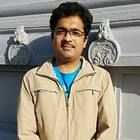 Sasank Viswanath Bethapudi, MSc in Chemical Process Engineering Graduate 2017
Sasank Viswanath Bethapudi, MSc in Chemical Process Engineering Graduate 2017

I finished my BE in Chemical Engineering from BITS Pilani University in India and later worked for about five years in industrial R&D centers within India. With my undergraduate degree as a base, I forayed into industry, working for companies with established R&D setups. Having aligned basically with the research route, I wanted to further my conceptual knowledge that may usher me into more advanced research areas. So, I arrived in the UK in pursuit of this and joined UCL.
- Read more
I was sure it was the place for fulfilling my aspirations by pursuing research linked to higher academics and gain dividends. The admission into UCL, which is ranked high in the world, is the gateway for quality academics and resourceful research, and I am lucky to be part of it.
To me, the MSc in Chemical Process Engineering at UCL is a blend of excellent modules and challenging research/design projects. Students can choose their curriculum from a spectrum of courses and projects. These primarily address some of the challenging demands of the present day, in the energy, industrial, environmental etc. domains. I ensured that my curriculum included some exciting courses like Nature Inspired Chemical Engineering, Energy Systems & Sustainability, Electrochemical Engineering and Safety & Loss Prevention, which were pivotal to my research project. I also had the flexibility to choose a course from the Management department to gain pertinent knowledge on project execution and business administration.
My research project was to develop the world’s first curved planar fuel cell module. The project was under the supervision of Prof Dan Brett at the Electrochemical Innovation Lab (EIL) at the department of Chemical Engineering (EIL is one of the major centers for fuel cell and battery research). I consider this stint of mine at EIL the best part of my MSc. Apart from the exciting topic of research, the continuous guidance, regular progress reviews and feedback by supervisor, the faculty & PhD scholars were some of the add-on features that were instrumental for my successful completion of the project.
I firmly believe that UCL is one of the best places for prospective graduates who can equip themselves with advanced subject knowledge with ease and move up to higher avenues in research and stay afloat in industry.
 Malak Wehbe, MSc in Chemical Process Engineering Graduate 2017
Malak Wehbe, MSc in Chemical Process Engineering Graduate 2017

I applied to study the MSc in Chemical Process Engineering at UCL directly after finishing a BEng in Chemical Engineering at the American University of Beirut, Lebanon. I applied to UCL owing to its reputable faculty and world-class research facilities. UCL is in the heart of London, making it an ideal location for international students like myself. This was also evident by the diversity of the student body at UCL, where I made friends from all over the world.
- Read more
The most significant part of my MSc journey was the research project. I chose to work on a challenging yet interesting project to enhance gas recovery from unconventional oil and gas reservoirs using molecular dynamics simulations. Even though I was not familiar with the software needed to work on this project, the support of my supervisor, Prof. Alberto Striolo, and his research group, allowed me to follow the correct path to successfully complete my research project. I worked with various researchers: professors, PhD students and other MSc students. I even got the chance to meet and present to visiting professors from other universities worldwide. I gained excellent research skills and experience in a relatively short period of time. This was due to the continuous support and guidance provided, as well as my perseverance to know more and fulfill my objectives. I am also going to publish an article about my MSc research in a scientific journal very soon. I believe that this is a great achievement that would not have been possible elsewhere.
This MSc program was especially attractive as all the modules were optional. Therefore, each student could tailor his/her module choices as needed. My modules were focused on advances in Chemical Engineering such electrochemical engineering, fuel cells technology and advanced process optimization. I also studied project management which was very helpful in job applications and interviews. I learnt quite a lot from each of my tutors, as the professors in the department are all experienced, supportive and motivating.
I highly recommend this program where you will gain new skills, work on interesting projects and develop as an individual. In addition to living in a cosmopolitan city like London!
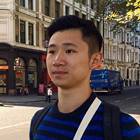 Jiahuan Yi, MSc in Chemical Process Engineering Graduate 2017
Jiahuan Yi, MSc in Chemical Process Engineering Graduate 2017

The year at UCL was amazing. It is definitely one of the most challenging and rewarding experiences that I have ever had. I don’t have a first degree in Chemical Engineering, but it is the MSc programme of Chemical Process Engineering that has offered me the chance to spread my wings. In this highly successful programme different students and researchers from various backgrounds communicate and collaborate to pursue the excellence in Chemical Engineering and to therefore achieve the goal of ‘Changing the World’.
- Read more
The programme is quite comprehensive, providing students with various options of modules from different disciplines including Chemical Engineering, Environmental Engineering and Engineering Management. It will not only train you to be a brilliant engineer or scientist but also an entrepreneur in the chemical industries. Also, the programme is fully accredited by the Institution of Chemical Engineer (IChemE), allowing the graduates even without a Chemical Engineering background to pursue their careers to be chartered engineers.
What is notable is the Advanced Design Project, where I worked in a team with six peer students. The project was split into two major parts including designing and researching and lasted for a whole year. It was quite intensive but truly rewarding. In the first phase, we were assigned a task to design a plant producing high-purity styrene, from which I have learnt plenty of industrial experience and the spirit of teamwork. In the second phase, I was required to individually carry out a research project regarding the safety analysis for the styrene plant that was previously designed. I was under the supervision of Prof. Haroun Mahgerefteh and during the process he gave me a lot of valuable advice including how to carry out a safety analysis, how to model the hazardous phenomena in a chemical plant etc. Also, notably, experts from world-class chemical corporations such as BP would be invited to give lectures to us students. Such experiences gave me the opportunity to very closely learn the latest technologies, notions and concepts in the chemical industries.
Situated in central London, UCL is a wonderful institution that has been with its multiple resources cultivating generations of talents that have contributed to the world. I feel very lucky and proud that I am part of it
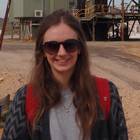 Alexandra Mitchell, MSc in Global Management of Natural Resources Graduate 2017
Alexandra Mitchell, MSc in Global Management of Natural Resources Graduate 2017

UCL has a world-renowned name; I decided that a degree from here would provide me with good opportunities and excellent teaching. I chose the course because it is highly multidisciplinary, covering many areas of natural resources and business that I had never touched before but perceived them to be important in my career. I also thought the opportunity to work in Australia alongside a company was one that was invaluable and not offered elsewhere.
- Read more
I have just finished my MSc Thesis related to the Social Licence to Operate at a small mining operation in South Australia. The project was carried out alongside Terramin. I spent my time talking with the community members to understand the impact the mine has had on their lives and the influence they have had on the mining company.
It was challenging for me to spend time away from my friends and family whilst in Australia. However, I did my best to make the most of the situation by working with a community out there.
I have thoroughly enjoyed meeting people from a wide range of backgrounds and from all over the world. Getting to know new cultures and learning from like-minded people.
I will begin working with mining consultancy company Wardell Armstrong in their Truro office, as a social and environmental specialist. Based in Cornwall, U.K. but with many opportunities to travel abroad, working with mines in emerging economies across the globe.
Astrid Benz, MSc in Global Management of Natural Resources Graduate 2017
I was especially attracted by the Master’s interdisciplinary curriculum as I wanted to gain a more technical understanding of the management of natural resources. As I worked in energy research before the Masters, the program also seemed to be a good fit due to its focus on energy resources.
- Read more
As I have a bachelor’s in economics, challenging was especially the subject “natural gas processing” which is the most technical subject of the master program. In order to get a good understanding of the material, I had to research a lot of terms which where common knowledge for the students with an engineer or chemistry background. This made studying for this subject much more time-consuming but was definitely doable.
I liked the exchange in Adelaide, the city is lovely, quieter than London but there are still many things to do. Also, I liked the team spirit we developed over time in our class, studying together, writing on essays all night etc. This was reinforced by the small class size, coming from all over the world with diverse backgrounds.
 Close
Close


